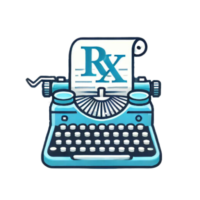Introduction
The pharmaceutical industry is a vital component of global healthcare, responsible for developing quality of life-enhancing treatments. Despite its importance, the industry faces numerous challenges, from regulatory hurdles to ethical concerns. At the same time, emerging opportunities, particularly in technology and personalized medicine, offer exciting prospects for growth and innovation.
Current Landscape of the Pharmaceutical Industry
Overview of the Pharma Sector
• Global Market Size: Valued at around $1.5 trillion, with continuous growth expected.
• Key Players: Dominated by major companies like Eli Lilly, Novo Nordisk, and Johnson & Johnson
• Market Trends: Increasing demand for biologics, vaccines, and specialty drugs
Major Trends and Market Statistics
• Aging Population: Driving demand for chronic disease treatments
• R&D Investments: Companies invest heavily in research and development, especially in rare disease areas with significant unmet needs
• Mergers and Acquisitions: Consolidation to expand portfolios and capabilities and leverage AI
Challenges Facing the Industry
Regulatory Hurdles
• Stringent Approval Processes: Lengthy and costly clinical trials required
• Changing Regulations: Adapting to new laws and compliance standards
• Global Variations: Navigating different regulatory environments across countries
Drug Development and R&D Costs
• High Failure Rates: Many compounds fail before reaching the market
• Rising Costs: Developing a new drug can exceed $2 billion
• Time-Consuming Processes: Typically taking 10-15 years from discovery to approval. This has been improving in recent years, especially for large molecule drugs
Public Perception and Ethical Concerns
• Pricing Controversies: Debates over high drug prices and affordability
• Access to Medications: Disparities in availability, especially in low-income regions and coverage management restrictions
• Ethical Marketing Practices: Ensuring transparency and honesty. The US is one of few places were direct to consumer marketing is allowed. The other country is New Zealand.
Emerging Opportunities
Technological Advancements
• Artificial Intelligence (AI): Enhancing drug discovery and development efficiency.
• Big Data Analytics: Leveraging data for insights into disease patterns and treatment responses.
• Digital Health Platforms: Engaging patients through apps and wearable technology.
Personalized Medicine and Genomics
• Tailored Therapies: Developing treatments based on individual genetic profiles.
• Biotechnology Innovations: Advances in gene editing and cell therapies. This decade alone has introduced numerous one-time gene therapy options
• Companion Diagnostics: Tests to determine the suitability of treatments for patients.
Investment in Pharma
Pharmaceutical Investment Trends
• Venture Capital Interest: Increased funding in biotech startups.
• Public-Private Partnerships: Collaborations to share risks and resources.
• Stock Market Performance: Pharma stocks remain a significant part of investment portfolios.
New and Upcoming Pharmaceutical Companies
• Startups and Biotechs: Smaller companies driving innovation.
• Focus Areas: Emphasis on rare diseases, immunotherapies, and digital therapeutics.
Future Outlook
Strategies for Overcoming Challenges
• Embracing Innovation: Investing in new technologies and research methods.
• Collaborative Approaches: Partnering with other organizations and sectors.
• Patient-Centric Models: Focusing on patient needs and outcomes.
Conclusion
The pharmaceutical industry has unprecedented opportunities. By navigating regulatory landscapes, addressing ethical concerns, and embracing technological innovations, the industry can continue to grow and make vital contributions to global health.







